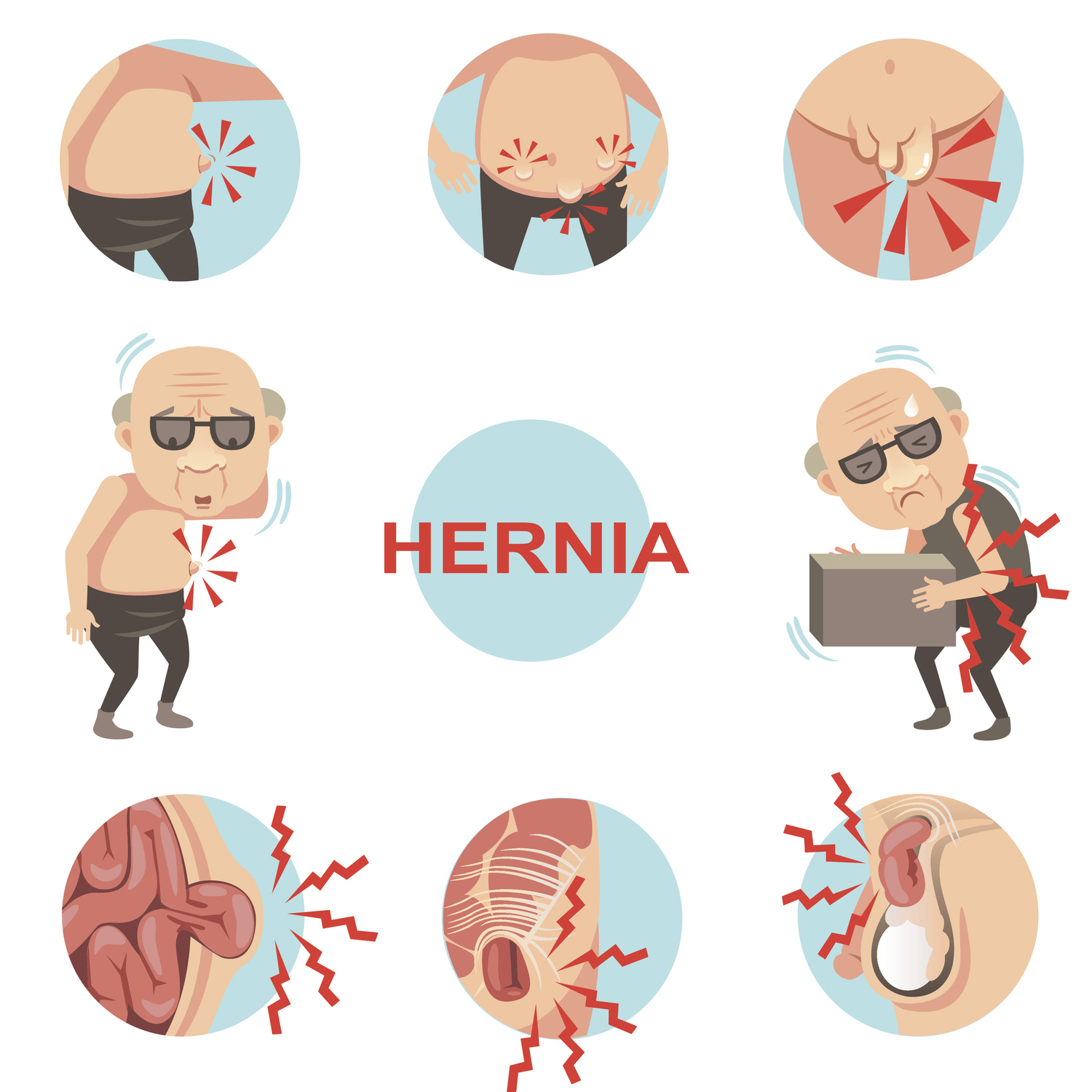Inside Out: Understanding Hernias
If you are familiar with the popular 90’s sitcom ‘Friends’, you might remember the episode where Joey is in agony due to a ‘thing sticking out of his stomach’ after lifting weights. That ‘thing’ causing him pain is a hernia, but what is a hernia?
A hernia is tissue in your body that is bulging out of position into an area it doesn’t belong. The structures meant to hold the tissue in place either weaken or a hole forms.
Hernia Symptoms
- Strange new lumps or bulges
- Pain, swelling or discomfort at the hernia site
- Pain when bending over, coughing or lifting
- Persistent coughing
- In severe cases, bowel obstruction, nausea, or vomiting
Most Common Types of Hernias

Inguinal hernia: Located in the groin, more common in men.
Femoral hernia: Located in the upper thigh/outer groin, more common in women.
Umbilical hernia: Occurs around the belly button, common in infants and pregnant women.
Hiatal hernia: Part of the stomach pushes through the diaphragm into the chest cavity.
Incisional hernia: Occurs at the site of a previous surgical incision.
Hernia Risk Factors
Hernias can happen to anyone and are sometimes beyond your control. However, there are risk factors that increase your chance of getting a hernia and those include:
- Being obese
- Pregnancy
- Chronic constipation
- Jobs or hobbies that include heavy lifting, straining or long hours of standing
- Smoking
If you do get a hernia, surgical intervention may be needed. A General Surgeon will need to repair and reinforce the weakening tissue. Hernia surgeries can be done minimally invasively and completed by using tiny incisions which allows for fewer risks to the patients, faster recovery times and less scarring.
To avoid potential hernias, one should look at their lifestyle; Take care of nutrition by following a diet high in fiber and full of healthy protein, carbohydrates and fat to practice healthy weight management, exercise regularly, quit smoking and use proper lifting techniques.

